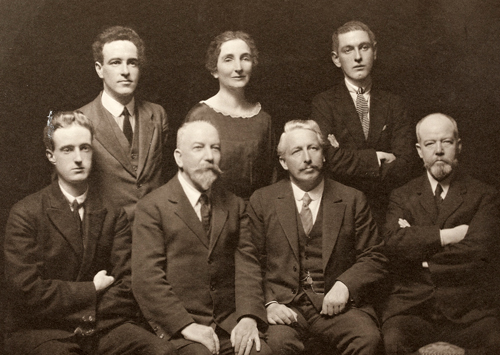British government seeks indemnity as Art O’Brien case leads to deportees return to England
Londnon, 29 May 1923 - A Bill to indemnify British Ministers and others against actions arising out of the decision to deport around one hundred people - men and women - to Ireland received its second reading in the House of Commons yesterday.
The first reading of the Indemnity Bill took place on May 17th, the same day that around 100 prisoners previously deported to the Irish Free State were returned to England at the request of the British government.
The return journey was a cheerful one and filled with the singing of Irish songs and shouts of ‘Up the Republic’ and ‘Up de Valera’
A number of the returned deportees have since been re-arrested and charged with seditious conspiracy, including Mr. Art O’Brien, one of the founders of the Irish Self-Determination League of Great Britain (ISDL), who had been earlier returned to London, accompanied by an Irish military escort, after applying for a writ of habeas corpus to be heard by the Court of Appeal.

Art O'Brien arriving at Brixton Prison after being remanded (Image: Cork Examiner, 18 May 1923)
Mr. O’Brien’s application was granted by the Court of Appeal, where Lord Justice Bankes determined that since the establishment of the Irish Free State an order could not be properly made by the Home Secretary for the internment of a person in the Irish Free State.
All the judges emphasised the liberty of the subject, pointing out that no person should be deprived of his liberty except by due process.
Mr. O’Brien’s case was immediately applicable to all
other Irish deportee cases and, as the Evening Standard
in London pointed out earlier this month, raised ‘questions
of the highest constitutional importance, affecting not only the
liberty of the subject but also the constitutional relationship of
the Irish Free State to the Imperial Government.’
Addressing the House of Commons yesterday during the second
reading of the Indemnity Bill, the new British Prime Minister, Mr.
Stanley Baldwin, declared that the Government was prepared to
receive claims relating to expenses or direct losses sustained by
deportees. However, Labour Party leader Mr. Ramsay MacDonald
insisted that not only should the house deny indemnity to the Home
Secretary for the illegal acts he had committed, it should censure
everybody involved in them.
Former Prime Minister David Lloyd George, while expressing sympathy for the Home Secretary, said the issue of concern was the precedent of deporting British subjects to the Dominions and that the deportees should not have been sent to Ireland. The proposed legislation, he continued, was not a bill of indemnity, but a bill to deprive those who had been deported illegally of any rights.
[Editor's note: This is an article from Century Ireland,
a fortnightly online newspaper, written from the perspective
of a journalist 100 years ago, based on news reports of the
time.]





















